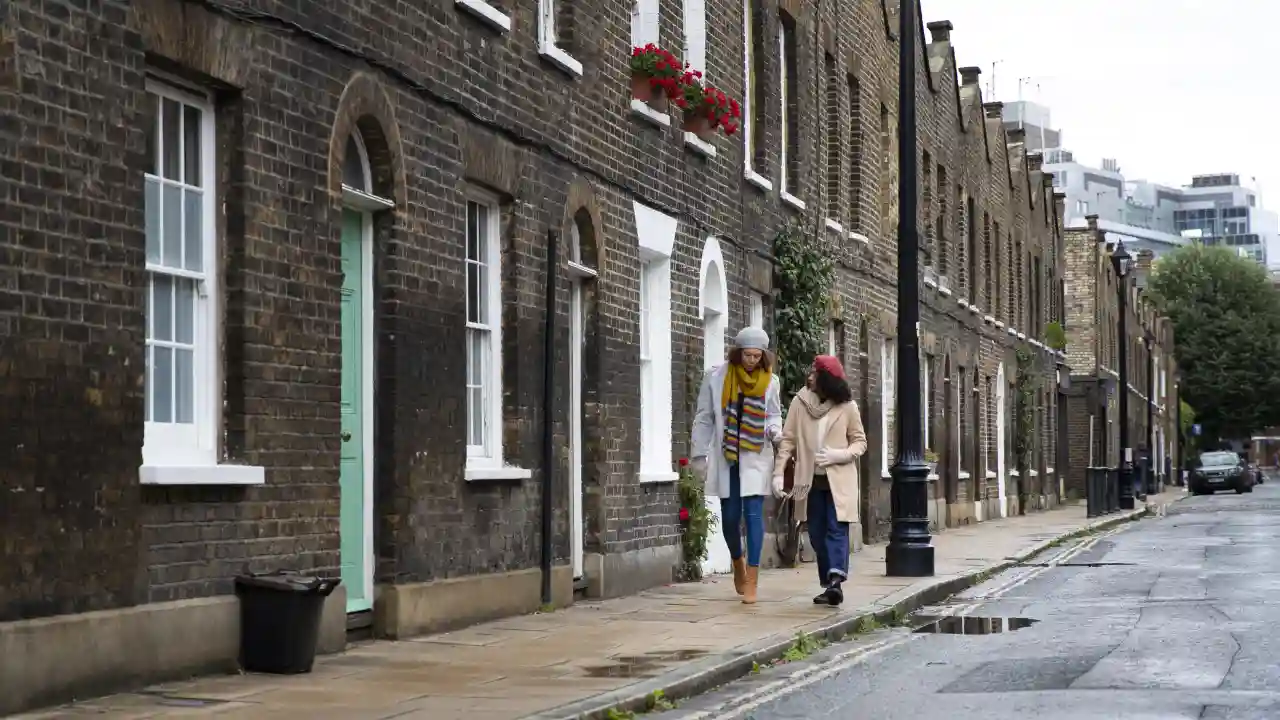Facing the need for temporary accommodation can be a difficult circumstance. In the United Kingdom, local authorities are legally mandated to provide offer housing to individuals experiencing homelessness or vulnerable to it. “How long can the council keep you in temporary accommodation?” is a not unusual query amongst the ones dealing with homelessness, because the length of such arrangements can vary primarily based on character circumstances and local rules. This article will explore the regulations surrounding the duration of temporary housing, the factors shaping this timeline, and the rights of individuals seeking assistance.
How Long Can the Council Keep You in Temporary Accommodation?
Temporary housing is a sort of lodging that the council offers to individuals who are homeless or at risk of homelessness. It is supposed to be a short-term solution until you find a longer-term home.
- The length of your stay in transient housing depends on numerous elements, along with your eligibility for longer-term housing from the council or a housing affiliation.
- The availability and suitability of temporary housing in your vicinity or close by your capacity and willingness to find private rented accommodation the council’s assessment of your housing wishes and preferences.
- According to Shelter England, you can expect to live in transient housing for months or years in some areas. You may also need to circulate from one area to another all the way through that point.
If you’re unhappy with your temporary housing, you can ask the council to review your state of affairs and provide you with an opportunity for accommodation, if viable. You must additionally be given any reasonable offer of longer-term housing from the council or a housing association, as this will cease your stay in transient housing.
Comprehending Temporary Accommodation
Temporary accommodation, commonly known as emergency housing, constitutes a form of housing assistance extended by local councils to individuals and families facing homelessness or the immediate threat of it. Its central objective revolves around offering a secure and safe environment for individuals to reside in until a more stable and permanent housing alternative becomes accessible.

Factors Influencing the Duration of Temporary Accommodation
Various factors can impact the duration of your stay in temporary accommodation:
- Homelessness Status
The duration of your stay in temporary accommodation depends on your homelessness status. Local councils often prioritize individuals in the most urgent situations, including families with children or vulnerable individuals, when allocating temporary housing.
- Housing Availability
The availability of suitable permanent housing within your local area is a critical factor to consider. When affordable housing options are limited, it can sometimes necessitate an extended period for the council to locate a suitable, long-term residence that meets your needs. In regions where the housing market is especially competitive, locating the right living might also pose demanding situations, probably leading to an extended stay in temporary accommodation as the council diligently strives to stabilise a possible permanent solution tailor-made to your particular situation.
- Personal Circumstances
There are instances, which embody factors like your earnings, health status, and any specific requirements, that can impact how long you stay in temporary accommodation. Individuals with complex needs might require an extended period to identify suitable housing solutions.
Legal Timeframes
The council cannot keep you in temporary accommodation indefinitely. There are legal timeframes that must be adhered to:
- 56-Day Limit
The council can commonly preserve you in transient lodging for up to 56 days at the same time as they assess your homelessness application and work on finding a more permanent answer. This is frequently referred to as the “56-day rule.”
- Reasonable Time
Beyond the initial 56 days, the council should continue to work with you to secure permanent housing. They must act within a reasonable timeframe based on your circumstances.
- Extensions
Occasionally, the local council may request extensions beyond the 56-day limit if they can provide evidence of their active efforts to secure permanent housing and establish that achieving this within the initial 56 days is not feasible.
Your Rights and Responsibilities
As someone in temporary accommodation, you have rights and responsibilities:
- Regular Updates
The council should provide you with regular updates on your housing situation and progress towards finding permanent accommodation.
- Collaboration
It’s important to work closely with the council and provide any requested information promptly to help speed up the process.
- Seek Advice
If you believe the council is not enjoying its obligations or that your rights aren’t being reputable, are seeking recommendations from housing charities or felony experts who can assist you in knowledge and enforcing your rights.
People Also Asked
1. How long can the council keep me in temporary accommodation under the 56-day rule?
The council can generally hold you in temporary accommodation for up to 56 days whilst they determine your homelessness application and plan on finding extra permanent housing solutions.
2. What happens after the 56-day limit is reached?
After the initial 56 days, the council should continue to work with you to secure permanent housing. They must act within a reasonable timeframe based on your circumstances.
3. Can the council extend the 56-day limit if necessary?
Yes, in a few cases, the council can be granted extensions beyond the fifty-six-day restriction if they could display that they are actively operating to secure permanent housing and that it isn’t possible to achieve this within the initial 56 days.
4. What factors influence how long I stay in temporary accommodation?
Several factors can influence the duration of your stay, along with your homeless status, the availability of suitable permanent housing in your local place, and your occasions, such as income and health.
5. What are my rights while in temporary accommodation?
You have the right to regular updates from the council on your housing situation and the progress being made towards finding permanent accommodation. You also have the right to be treated fairly and respectfully throughout the process.
6. What can I do if I feel the council is not working to find me permanent housing within a reasonable timeframe?
If you believe that the council isn’t fulfilling its responsibilities or that your rights are not being respected, are seeking advice from housing charities or legal experts who can help you with information and implementing your rights.
7. Can I be evicted from temporary accommodation without notice?
Generally, you ought to be provided with notice if the council intends to quit your temporary accommodation. The notice period can vary, however, you’ve got the proper to task the selection in case you agree that it’s far unjust.
8. Can I refuse temporary accommodation provided by the council?
While you have the proper to refuse temporary accommodation, it’s essential to take into account your options cautiously. Refusing temporary accommodation may have an effect on your eligibility for further help, so it is recommended to look for recommendations earlier than making any such decision.
9. What should I do if I have specific needs or vulnerabilities?
If you have precise needs or vulnerabilities, inform the council as soon as feasible. It will allow you to take your circumstances into consideration when finding appropriate temporary or permanent accommodation.
10. Is there financial assistance available while in temporary accommodation?
Your eligibility for economic help may also vary depending on your specific situation. It is essential to contact the neighbourhood council or suitable groups to inquire approximately any capacity economic resource or benefits for which you could meet the criteria.
11. How can you balance selling a house with uncertainties about temporary accommodation duration?
When selling a house and thinking about a transition to temporary accommodation, it is vital to be aware of the potential timelines involved. The procedure of selling a house can vary considerably, and it might make an effort to discover a customer and whole the sale. Simultaneously, if you’re facing homelessness and seeking temporary accommodation from the council, you should understand the duration limits associated with such arrangements. These limits may be influenced by factors like your housing status, local council policies, and availability of permanent housing options. It’s wise to plan your transition carefully, ensuring that you have a clear understanding of both the house-selling process and the temporary accommodation arrangements to make the transition as smooth as possible.
Conclusion
Understanding how long the council can provide temporary accommodation is essential for individuals in need, as it helps them plan for his or her housing scenario and get entry to necessary assistance at some point in their lives. Temporary housing serves as a vital guide device for individuals grappling with homelessness inside the UK, although it is not a sustainable solution. Local government can offer transient lodges for most of 56 days even as actively strolling in the course of securing an eternal residence for you. Nevertheless, the precise duration may additionally vary due to elements inclusive of your homelessness repute, housing availability, and private situations. It is crucial to be properly informed about your rights and duties during this era and to seek assistance in case you perceive that your situation is not progressing as predicted. It is of paramount significance to bear in thoughts that the final intention is to help you attain stable and lengthy-lasting housing for both you and your circle of relatives.
